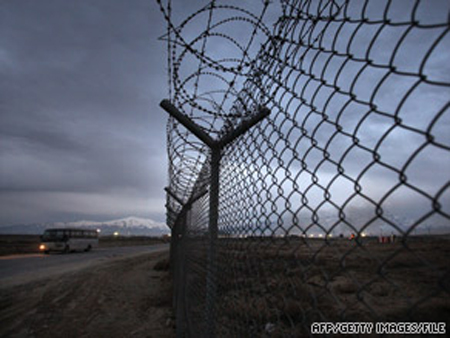Last week, the Afghanistan Working Group on Conflict-Related Detentions urged the United States to open the Bagram detention facility to the Afghanistan Independent Human Rights Commission (AIHRC) and to better respect Afghan law. The joint call for accountability is the first time the group publicly issued a statement.
It would serve the United States and its allies well to listen. As foreign forces look to make their detention policies more transparent and less alienating, the working group culls together the expertise of Afghans who interact on a daily basis with people affected, and often outraged, by international detention operations.
Composed of Afghan lawyers and human rights professionals, the working group is one of the newest seeds in Afghanistan's growing civil society; a civil society that is increasingly harnessing the power of joint initiatives and shared voices. This demonstrates an effort to rebuild, reorganize, and strengthen a country that has endured 30 years of war with imbalanced power.

bus passes a fence topped with razor wire at Bagram Air Base, Afghanistan, earlier this year.
The working group feels the United States should 1) open Bagram to the AIHRC 2) not allow the prison to function outside the laws of Afghanistan, 3) deploy sufficient resources to ensure new detention policies better protect the rights of detainees, and 4) ban the use of coerced evidence at detainee review proceedings.
This isn't a group of "American bashers." The working group is also critical of the Afghan government. They recognize that much must change on both sides for detention policies to improve.
In recommendations made to the International Security Assistance Force (ISAF) the working group recognized the Afghan government's need to strengthen the country's rule of law and improve respect for the due process guarantees of Afghan detainees.
Indeed, the only way the United States will feel comfortable getting out of the detention business, is if it trusts the Afghan justice system. During a recent interview, a man sentenced to 20 years in Kabul's Central Prison analogized Afghanistan's bribery-laden justice system to a spider web. "A big important animal can easily break through it. But a small person will get trapped for life."
Note: The Afghanistan Working Group on Conflict-Related Detentions consists of the Afghanistan Human Rights Organization, the Afghanistan Independent Bar Association, the Afghanistan Independent Human Rights Commission, the Afghanistan Legal and Social Services Organization, and other Afghan organizations working on conflict-related detention issues.